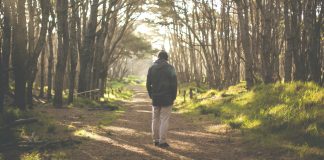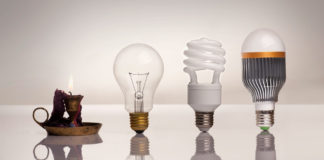Costly choices
One reason, if not the reason why the story of humanity's first wrong choice, the original failure, is vehemently denounced is the brutality with which this event—a seemingly trivial "dietary" decision that turned out to be the most costly ever made by a human being—reminds us more powerfully than any other story how painful the consequences of our mistakes can be. We do...
Post-atheism and the relativisation of relativism
The end of the last century created the perfect context for postmodernism to exercise its veto over all the ethical dilemmas of the day. As a result, today, as in vitro fertilisation, abortion, euthanasia or homosexual marriage enter the legislative agendas of more and more countries, we see political correctness taking precedence over religious morality.
A plea for leisure
"What is this life if, full of care, / We have no time to stand and stare." — from the poem "Leisure" by William H. Davies.
Vaping: a plague disguised as a revolution
In developed countries, where the public debate on tobacco consumption has been so widespread that even those who had no desire for it were educated on the negative effects of smoking, the prevalence of this toxic habit dropped so drastically that it caused trouble for cigarette manufacturers.
Fatherhood through a toddler’s eyes
I used to think I was a patient person. Then I became a dad.
“Relax…it’s just God”
When I read how a non-religious mother felt she needed to calm herself down at the thought that her child might begin to believe in God, I was surprised and almost offended.
Silence after the storm: Friendship, between quarrels and forgiveness
Eskimos don't have the word "quarrel" in their vocabulary. They live in a particularly harsh climate, so no one wants to risk getting pneumonia (or dying) just to prove that they are right.
The prophecy of the Messiah
Daniel chapter 9 contains what many consider to be the most sublime prophecy of the Old Testament—a prophecy of the Messiah, Jesus Christ. Amazingly, not only did this prophecy reveal the purpose of His incarnation as a child, but it also specified when His ministry would begin and when He would die.
From rancour to forgiveness: How do Christians manage conflict?
A lack of conflict is not necessarily a sign of spiritual maturity, as some Christians might be tempted to believe. The way in which we manage conflict says a lot about how we understand the role of grace, forgiveness and reconciliation in a sinful world.
Evolution: Impossible
Dr. John Ashton of Newcastle, Australia, is a compelling example of a serious research scientist who bases his beliefs regarding the origins of the universe and life on the Bible.
The price of pleasure | Favourite myths of the porn industry
Confessions of former porn addicts and their parents or life partners, as well as shocking confessions made by actors in the porn industry reveal what lies behind the XXX curtain.
The last tear
I found myself at the airport, waiting to board my flight. At one point, the speakers announced the names of four people who were expected at a nearby boarding gate. Their names were called three times. Eventually, the airport staff withdrew, and the door closed behind them. Shortly afterward, a modest-looking family appeared. The confusion in their eyes, as they glanced left and...
Cohabiting before marriage reduces the risk of divorce: true or false?
More and more people are choosing cohabitation over marriage. Many young people believe that cohabiting helps them to make better decisions about marriage by giving the couple a chance to "practise" before making a lifelong commitment. There is also a belief that cohabiting before marriage reduces the likelihood of marital problems or divorce.
The hopeless generation
I talked to Pastor Nicu Butoi about the role that religion could play in treating depression and hopelessness, at the end of a series of evangelistic presentations he gave to a full-house before the pandemic.
Saving creativity
An experimenter is like a hunter who, instead of waiting quietly for game, tries to make it rise, by beating up the locality where he assumes it is. – Francis Bacon, 17th-century English philosopher


























